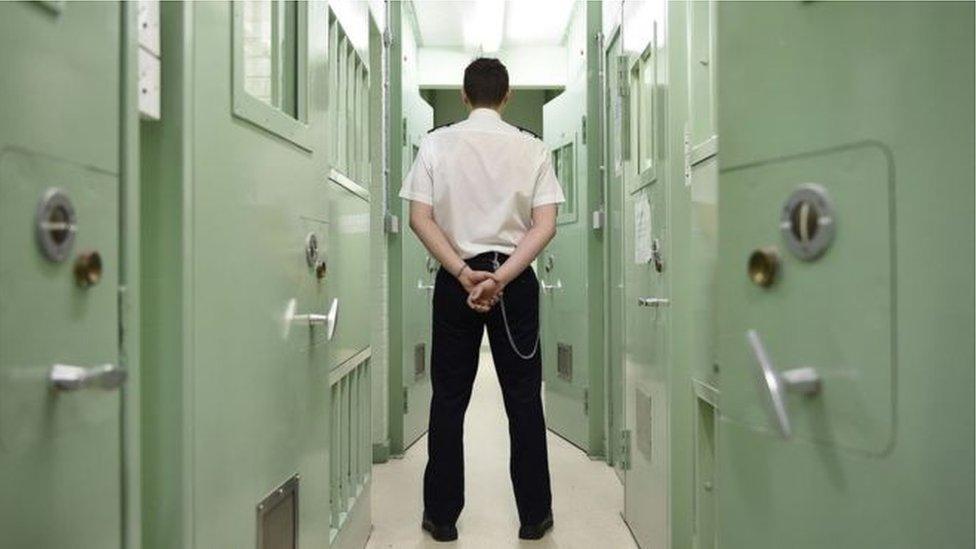Coronavirus: Zoom calls reunite prisoners with families
- Published
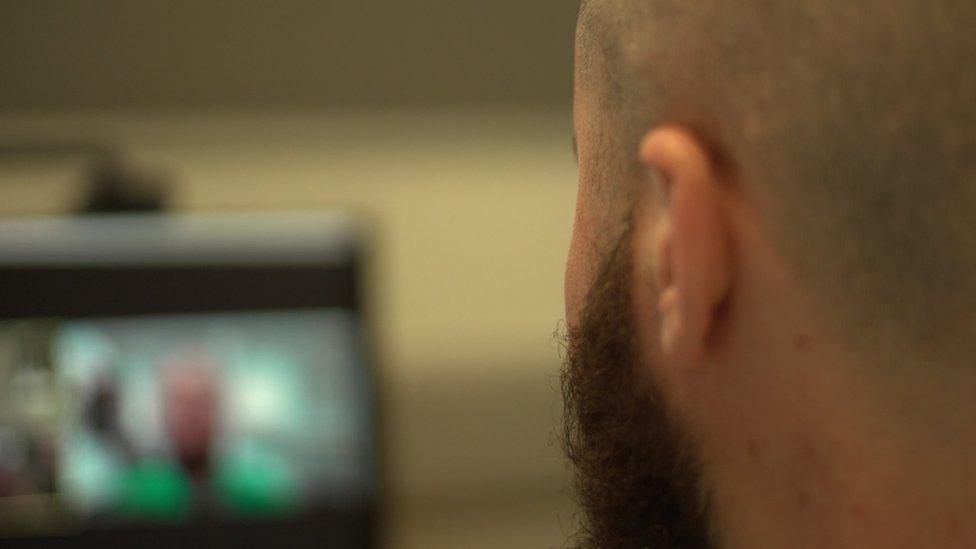
New video calls at Maghaberry Prison are allowing inmates to connect with a wider circle of friends and family outside than ever before.
Face-to-face visits at UK prisons have been suspended during the Covid-19 pandemic.
But Northern Ireland's maximum security jail has become one of the first in the UK to allow inmates to make Zoom calls to people all over the world.
For some prisoners, it has meant seeing family for the first time in years.
"We have quite a number of foreign national prisoners who've been here for a lengthy period of time, and have never seen their loved ones," said prison governor David Kennedy.
"Other prisoners haven't seen their homes, their pets or elderly relatives for a long time, it's been really beneficial to them."
'Successful beyond expectations'
Before the pandemic only face-to-face visits were permitted.
"In 32 years, I don't remember visits ever being suspended for anything more than a day or two, due to weather," Mr Kennedy said.
"So we knew that stepping away from family contact could have a big impact on the prisoners in our care.
"It took us three weeks to get the virtual visits up to speed, but they have now been successful beyond our expectations."
BBC News was given special access at HMP Maghaberry to sit-in on a virtual visit with a prisoner - we've changed his name to Darren.
As we approach the computer terminal, Darren's family appear on screen and there is immediate laughter.
He has shaved his head since their last call and they are seeing the new look for the first time.
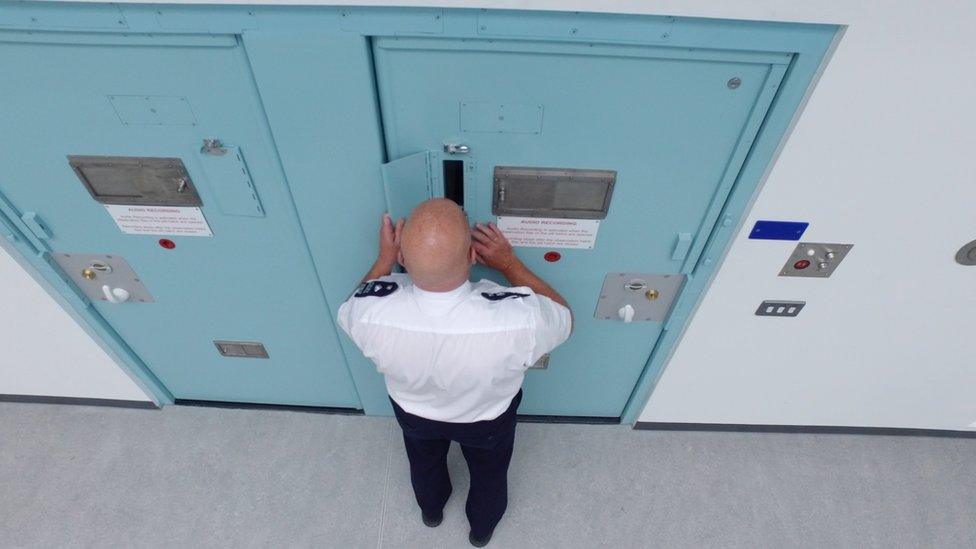
Contact with family is considered important for the mental wellbeing of prisoners
As his family peered in from their living room, a young child giggled and said: "He changed his hair!"
"It's good to get to see your home surroundings," said Darren.
"I've had Zoom calls with various groups of friends, my partner and my grandparents too. It's a lift."
"We missed the weekly visits when they stopped," his partner said over the video call.
"But this has been good. We don't physically get to see him and it's not for the same length of time, but 20 minutes is better than nothing."
Contact with family is considered important for the mental wellbeing of prisoners and as an aid to reducing offending.
Lockdown while locked up
HMP Maghaberry has made major changes to its regime to reduce the risk of infection during the coronavirus pandemic.
Prisoners are still able to leave their cells for between six and ten hours a day, but many educational classes have stopped and inmates are now only able to mix with others on the same landing.
One prison officer told us he believes that restricting prisoners to their own landings has in fact strengthened some relationships between inmates and staff.
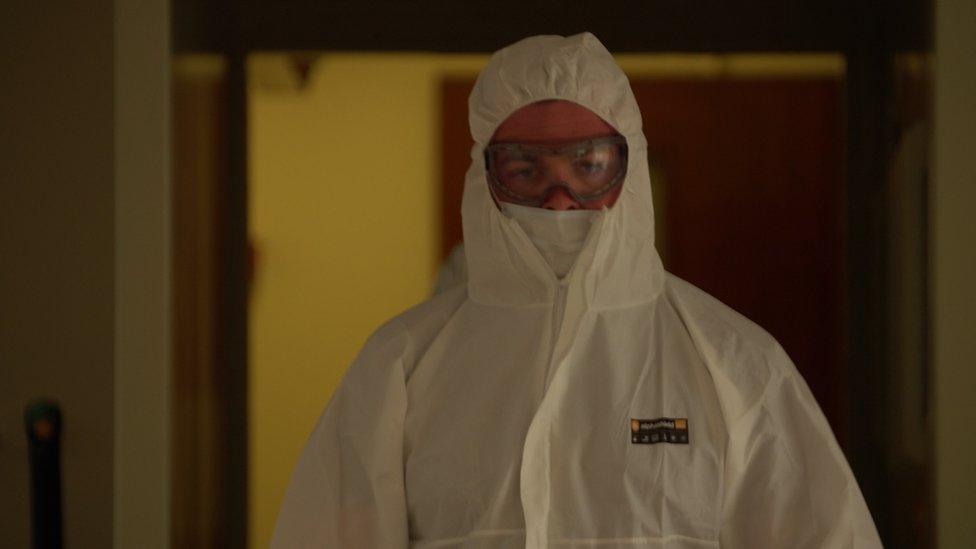
A prison officer in full personal protective equipment (PPE) in Maghaberry
"In the past a lot of our staff would just unlock in the morning, get the guys to their breakfast and then prisoners would head off to workshops.
"Now they're on the landing all the time and the guys are interacting more.
"It's a prison, there's always going to be tensions - sometimes new people coming in… but we try to allay those tensions and fears."
Staff have run some alternative fitness activities on landings, to try to keep prisoners occupied while gym and activity spaces are now out of bounds.
'Prison's not about punishment'
HMP Maghaberry has also accelerated the opening of a new building during the pandemic to reduce the number of prisoners sharing cells.
Only 46 prisoners are now doubled up in cells, compared to more than 400 at the start of the lockdown.
More than 600 prisoners have entered HMP Maghaberry during the pandemic and new inmates must now spend 14 days in quarantine.
The strict new regime by the prison staff has resulted in no prisoners testing positive for coronavirus.
There is no date set yet for face-to-face visits to resume, but the prison intends to keep the video calls a permanent option for prisoners in future.
However will allowing prisoners the opportunity to stay in contact with a much wider circle of family and friends during their sentences be seen as an unnecessary luxury?
"Prison's not about punishment, it's about preparing people for release back into the community," said governor David Kennedy.
"I think it's just really positive."
- Published31 May 2020
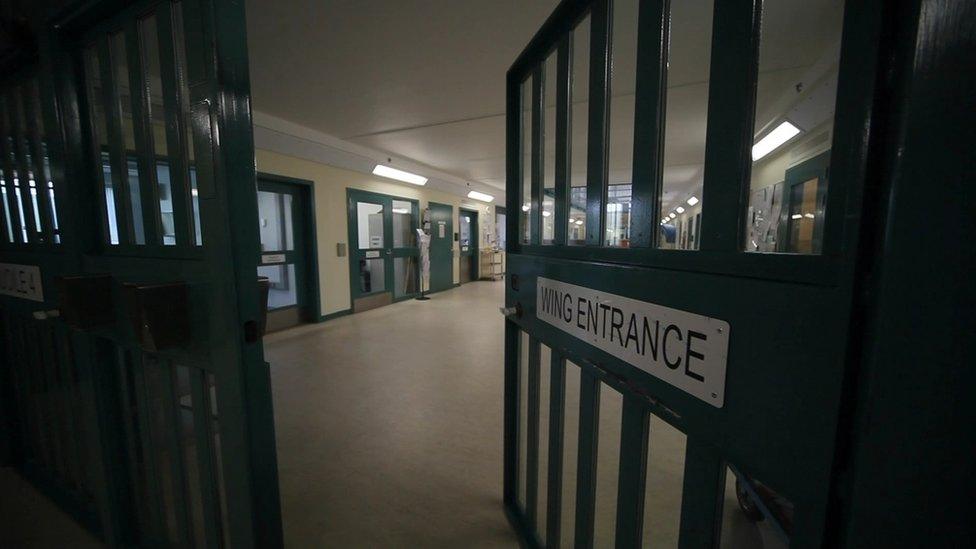
- Published30 March 2020
